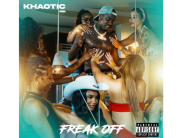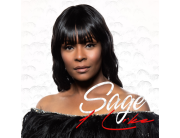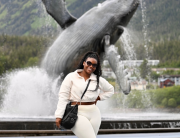In the vast repertoire of love songs, few have captured the essence of eternal commitment and bliss quite like “Happily Ever After” by the renowned artist, singer Case. Released in 1999, this enchanting melody has transcended generations, serving as the timeless soundtrack to countless love stories and earning its place among the greatest wedding songs of all time.
Emerging as a beacon of romance in a world hungry for heartfelt anthems, “Happily Ever After” showcased singer Case’s soulful voice and thoughtful lyrics. Crafted with finesse, the song’s gentle melody and potent verses paint a picture of undying love and unwavering devotion, making it the perfect choice for couples embarking on the journey of marriage.
At its core, “Happily Ever After” celebrates the promise of forever. It speaks to the timeless vows exchanged between partners, promising to stand by each other through life’s highs and lows. With lines like “Take you for my wife, the center of my life, And I will never, ever fade, From this choice I’ve made,” Singer Case encapsulates the essence of unconditional love and unwavering support.
As years passed since its release, “Happily Ever After” continues to hold sway as a symbol of love’s enduring power. Its inclusion in wedding ceremonies around the globe speaks volumes about its universal appeal and lasting impact. Whether played during the first dance or as a backdrop to heartfelt vows, the song continues to evoke tears of joy and sentiments of everlasting love.

Beyoncé An Iconic Presence:
Adding to its allure, the hit music video for “Happily Ever After” features a young Beyoncé. Even before ascending to global icon status, Beyoncé’s talent and magnetic presence were undeniable. Her captivating performance in the video further solidified the song’s status as a timeless classic, leaving an indelible mark on the hearts of viewers.
In a world where love is often fleeting, “Happily Ever After” stands as a testament to the enduring power of true love. Singer Case’s masterpiece, released in 1999, continues to inspire and enchant, reminding us that amidst life’s complexities, love remains the greatest adventure of all. As couples embark on their journey together, they can take solace in the timeless melody and message of “Happily Ever After,” knowing that their love story is destined for greatness.
Now take a look at this exclusive SHEEN interview with singer Case, where we uncover the inspiration behind “Happily Ever After.“
What inspired you to write “Happily Ever After,” and how did the concept for the song come about?
The song was almost finished when I got it. My best friend had just gotten married, and he actually brought me the song. I thought that it would be good to do a wedding song and it just felt right.
Can you share memorable moments from the song’s recording or production process?
The only thing I distinctly remember is it was the last song on the album so there was a crunch to get it done.
“Happily Ever After” features a young Beyoncé in its music video. What was it like working with her, and how did her involvement impact the overall feel of the video?
It was fun working with her. It was a 3-day shoot, and she was very young, so we discussed a lot of things she wanted to accomplish. Her career was so new that her being in the video didn’t add any value in that way, but we wanted a fresh face. She killed her acting in it.
The song achieved significant success on the Billboard charts. Did you anticipate its popularity, and how did you feel about its chart performance?
I anticipated it being popular. I didn’t really care about the chart performance. It was most important for me to make music that people would always listen to. That’s always been my goal. I just wanted the people to love it.
“Happily Ever After” is often regarded as one of the greatest wedding songs of all time. What does it mean to you to have your music associated with such special moments in people’s lives?
I love it. Again, the goal was to make music that transcends time, and this record absolutely did that. It’s a blessing.
How has the record affected your own love life?
It hasn’t. I didn’t really need a song, no matter how great it was, to inspire love in my life.
What do you think about the current state of R&B?
I like some of it. There’s stuff out there I like. The difference nowadays is you have to go look for good R&B. Back in the day, it was on the radio; on BET, it was easily accessible. Now you gotta look for it.
A lot of people don’t know about your history as a backup singer. Can you tell us some of the most notable records you did backup on?
The first song on Usher’s first album was a song on Christopher Williams’s album. It was less background and mostly reference work. The most notable record is that I arranged and sang the backgrounds on Montell Jordan’s “Let’s Ride.”
What do you think about people comparing you to Keith Sweat? And are those hard shoes to fill?
I’ve only heard that once from Andre Harrell. We were at the Soul Train Awards, but the comparison was about us being underrated, not vocally.
Can you tell us about anything new that you have going on?
I have a new album that I just finished called “Love Jones Volume 2” that will be released this year, and I have a podcast with Clint Coley called “Music Is the Love Language.”
For more information on Case:
INSTAGRAM | FACEBOOK | CASE ON TOUR
Images provided by MadConnects
For media inquiries, please reach out to Madeline Smith at Mad Connects:
Phone: (770) 733-7960
Email: madconnects@gmail.com
Website: www.MadConnects.online







Add Comment
You must be logged in to post a comment.